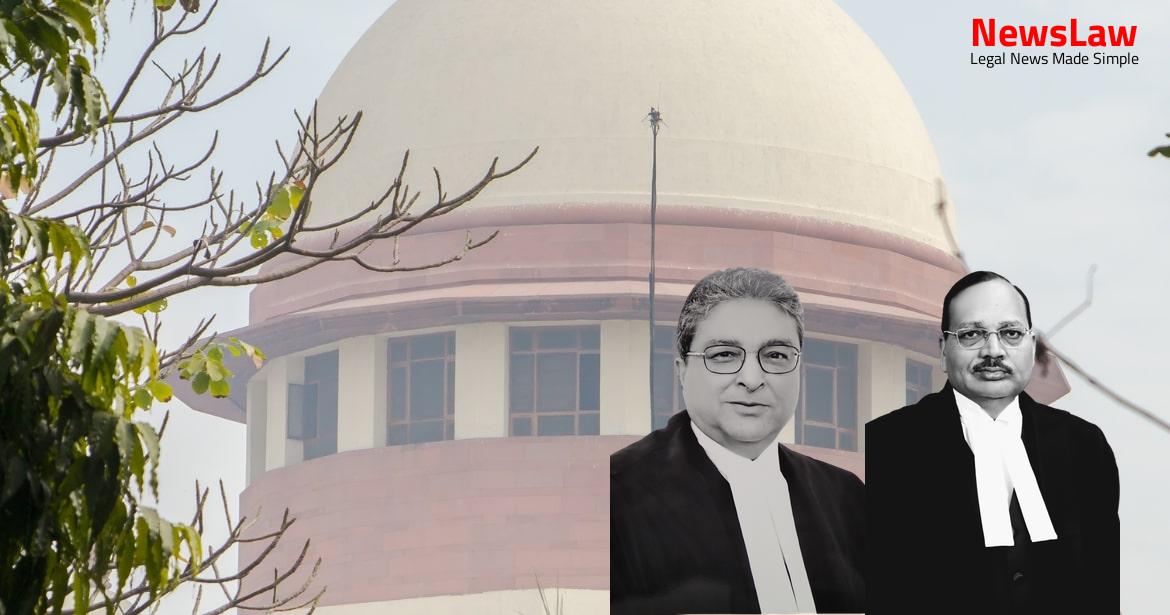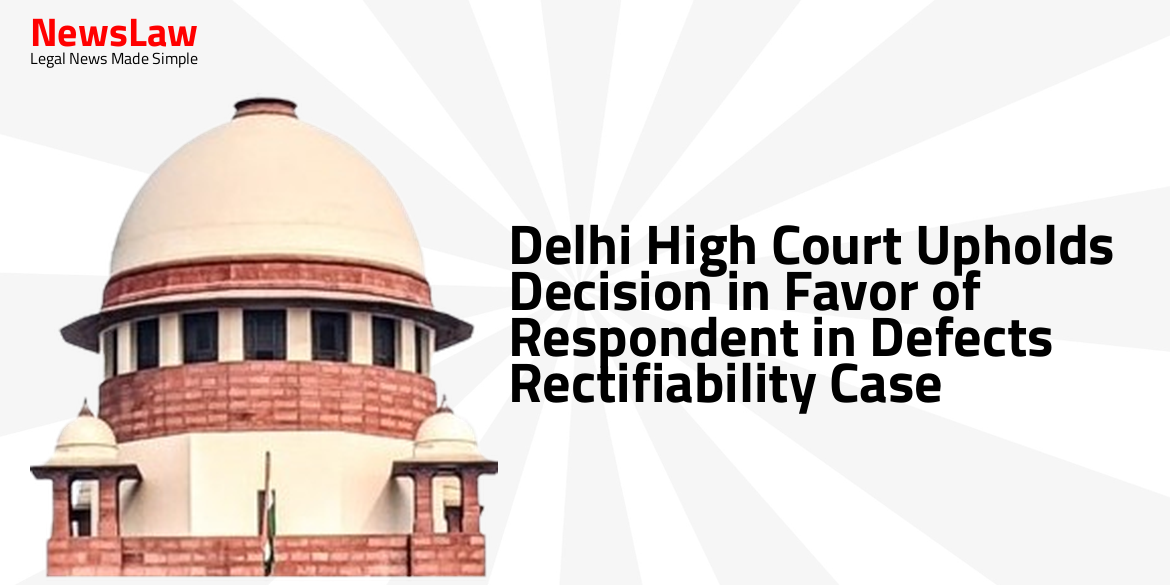Explore the detailed legal analysis of a case involving promissory estoppel and judicial review, shedding light on the importance of fairness, public interest, and bureaucratic accountability in contractual matters. The judicial scrutiny of administrative actions and the doctrine of promissory estoppel against the Government are key aspects discussed in the analysis. Stay informed about the evolving landscape of judicial review in commercial transactions undertaken by the State.
Facts
- M/s. Metropolis Hotels expanded the usage to residential-cum-commercial, beyond the tender conditions.
- High Court quashed the cancellation order by CIDCO, stating that change of land use and sub-division of the plot had proper authorization.
- CIDCO failed to show concrete violations prompting the cancellation of lease deeds.
- M/s. Metropolis Hotels and Shishir Realty Pvt. Ltd. challenged the cancellation through writ petitions.
- CIDCO and PIL petitioner filed separate appeals against the High Court’s judgement.
- CIDCO was estopped from canceling the allotment without showing a pressing need, based on promissory estoppel.
- M/s. Sun-N-Sand Hotels, being partners in M/s. Metropolis Hotels, submitting a separate bid was deemed as invalid.
- Metropolis Hotels was found to be ineligible to participate in the bidding process due to not being a registered partnership firm as required by the tender document.
- The change of user and sub-division of the plot was considered to be in breach of the terms and conditions specified in the tender document and letter of allotment.
- The transfer of part of the sub-divided plot to M/s. Shishir Realty Pvt. Ltd. before the execution of the lease agreement was found to be inconsistent with the conditions outlined in the General Terms and Conditions of the Tender and the letter of allotment.
- The deviations in the change of land use, sub-division of plots, and transfer of part of the plot were deemed illegal and unjustified, leading to the frustration of the original purpose of developing a five-star hotel.
- Due to the deviations and subsequent cancellation of the lease deeds, the basic objective of constructing a five-star hotel in Navi Mumbai was adversely affected.
Also Read: Electoral Malpractices in Mayor Election
Issue
- The issue at hand is whether a Board Resolution of the partnership firm is required to be annexed with the offer.
- The determination of this question is crucial for understanding the necessary documentation for the offer.
- Clarification on whether legal documentation like a Board Resolution is required can have implications on the offer’s validity.
Also Read: Balancing Power and Transparency: Electoral Bonds Struck Down, Disclosure Mandated
Arguments
- The PIL petitioner/appellant is a social activist involved in construction services.
- The change of land use violates clause 15 of the allotment letter which specified construction of a five-star hotel only.
- The change of land use was deemed illegal and arbitrary by the petitioner.
- The High Court judgment is challenged due to overlooking violations and illegalities during the tender process.
- CIDCO failed to prove any losses attributable to the respondent.
- CIDCO only raised bald allegations of collusion with management.
- No criminal action/disciplinary actions were taken by the State against the erring officials, indicating no real apprehension of collusion or financial losses.
- Respondents-lessees would be gravely prejudiced if the order of cancellation is upheld after investing a significant amount and facing prolonged litigation.
- The PIL petitioner’s involvement in the construction service business casts doubt on the public interest claimed in the PIL.
- The threatening tone of the notice issued by the PIL petitioner to CIDCO needs to be viewed with suspicion.
- Respondents-lessees argued that the allotment, change in land use, and transfer were conducted in accordance with the law.
- Promises made to the respondents-lessees were contradicted by representations to the general public, creating an exception to promissory estoppel.
- Respondents have complied with due procedure and paid requisite fees after allotment, making the cancellation after 13 years inequitable and prejudicial.
- There are disputes regarding the bona fides of the PIL petitioner.
Also Read: Recall of Resolution Plan Approval: Legal Analysis
Analysis
- The analysis of the judgement focuses on various aspects such as the legality of sub-division of plots and subsequent transfer of rights.
- It emphasizes the importance of providing effective natural justice to affected parties before making decisions.
- The doctrine of promissory estoppel is invoked by the respondents-lessees due to their reliance on directions from the appellant authority and payment of requisite amounts.
- The role of Constitutional Courts in reviewing the tender process is discussed, emphasizing the limited scope of review.
- The application of General Development Control Regulation for Navi Mumbai is a key aspect considered in the analysis.
- The issue of change in land use, sub-division of plots, and transfer of rights is examined in detail, highlighting the authority and discretion of CIDCO in such matters.
- The analysis points out instances of bureaucratic power abuse and the importance of fair and reasonable actions by public bodies like CIDCO.
- The need for considering public interest, proportionality, and substantial evidence in contractual matters is emphasized throughout the analysis.
- Government must satisfy the court on how public interest overrides the necessity of enforcing a contract.
- State activity is becoming more pervasive and requires recording of reasons for executive actions.
- The succeeding Government is duty-bound to continue the unfinished job of the previous Government as the State action continues to subsist.
- Judicial review of administrative action is becoming wider and expansive.
- The Government is bound by the principles of promissory estoppel.
- The doctrine of estoppel cannot be used against the legislature in its legislative functions.
- The Government must place sufficient material on record to claim exemption from performing its undertaking.
- Public authorities must uphold fairness, equality, and the rule of law in contractual matters.
- Judicial review is necessary even in commercial transactions undertaken by the State.
- Transparency in bidding processes is favored to ensure constitutional requirements are met.
- The decision of the executive must balance the alleged violation with the penalty imposed.
- Interferences in contractual matters may hold up public works or delay relief, causing increased project costs.
- The doctrine of promissory estoppel applies against the Government in its executive functions.
- A Co-operative society registered under the Maharashtra Co-operative Societies Act, 1960 is eligible to offer to acquire plot.
- The offer shall be signed by all partners and enclosed with true certified copies of Deed of Partnership and certificate of registration.
- A public trust registered under Public Trust Act, 1950 and also registered under Society Registration Act, 1860 is eligible to offer to acquire plot.
- The Government backtracked which led to prolonged litigation.
- The reasons stated in the order are perverse and based on extraneous considerations.
- The order annulling the allotment on hyper-technical grounds is unsustainable as it goes against fairness.
- No substantive violation of law or tender conditions were identified, making the authority’s conduct disproportionate.
Decision
- Appeal of the appellants dismissed
- Civil appeals dismissed with costs
- Pending applications disposed of
Case Title: THE VICE CHAIRMAN AND MANAGING DIRECTOR, CITY AND INDUSTRIAL DEVELOPMENT CORPORATION OF MAHARASHTRA LTD. Vs. SHISHIR REALTY PVT LTD . (2021 INSC 797)
Case Number: C.A. No.-003956-003957 / 2017



